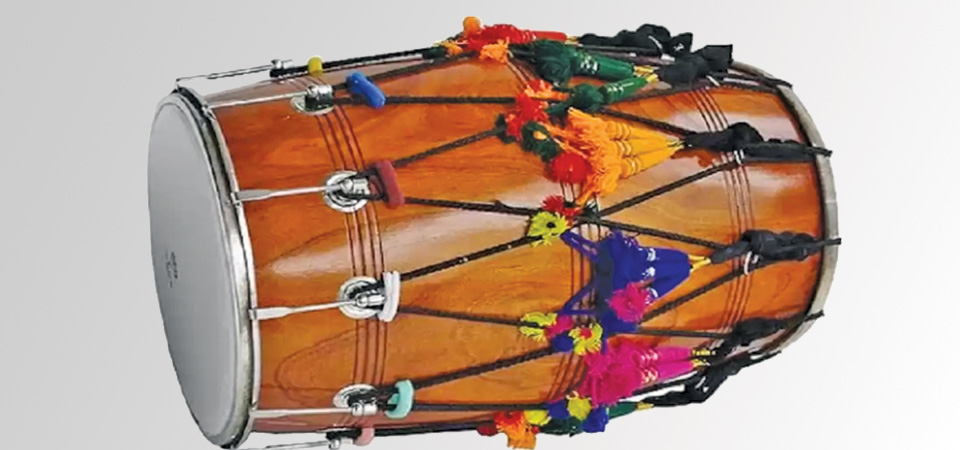Ban on Dhol playing hampers livelihood, culture of Chamars

By Dhirendra Prasad Sah
Janakpurdham, Oct 10 : Playing Dhol (drums) during Dashain is a culture among Terai-based Chamar (Ram) communities. However, the ban on playing the drum has been in place for almost a decade now, citing the occupation was not a good one.
During the ten days of the Dashain festival, some families from the community used to play the drums to earn food, pulses, oil, money and other items for all the year round. However, the Dalit community, formerly untouchables, has been deprived of this much-needed income because of the ban.
Although the Dalit movement has banned the Chamar community from playing the drums, they haven’t been provided with reliable alternatives so far.
Playing the drums associated with art, culture and ethnic traditional professions was commonplace in various ceremonies and festivals. The community used to play the drums in various ceremonies, including marriage, bratabandha, folk dance, Chhath, Tihar, Nwaran and Chhatihar. However, Laxman Ram said that he was not allowed to play the drums during Dashain.
Nandalal Sah, a local, said that during Dashain, the leaders of the community used to play the drums alongside music as they shouted in front of children, but that has become a history now.
On the last day of Dashain, they used to collect Dakshina from each house along with rice, pulses, potatoes, oil, money and other items – enough to feed their family for a year – and ferry them to their homes by bullock cart.
Making the matter worse is the fact that the old Chamar leaders of the villages and towns have not been able to walk due to their old age and the new generation of youths have not embraced the tradition.
According to Mohan Ram Chamar of Janakpur, about a decade-and-a-half ago, the Dalit movement strictly forbade throwing dead bodies and playing the drums during Dashain.
Those not abiding by the ruling were even fined. “That's why we didn't play the drums for many years,” Mohan Ram said, adding, “Even if I want to play the drum, my frail body won’t support.”
His grandchildren have also stopped playing the drums altogether. That’s because they have paid more attention to their studies, and even don't want to stick to the profession.
Bhuneshwar Ram, an elderly leader of the community, said that the new generation of literates have started going to India, Qatar, Malaysia and other Arab countries for employment instead of playing the drum to earn their living.
Due to the ban, the culture of the festival and the ancestral occupation of the community is in crisis. But that has done little, if at all, to change the mentality portraying them as untouchables.
Recent News

Do not make expressions casting dout on election: EC
14 Apr, 2022
CM Bhatta says may New Year 2079 BS inspire positive thinking
14 Apr, 2022
Three new cases, 44 recoveries in 24 hours
14 Apr, 2022
689 climbers of 84 teams so far acquire permits for climbing various peaks this spring season
14 Apr, 2022
How the rising cost of living crisis is impacting Nepal
14 Apr, 2022
US military confirms an interstellar meteor collided with Earth
14 Apr, 2022
Valneva Covid vaccine approved for use in UK
14 Apr, 2022
Chair Prachanda highlights need of unity among Maoist, Communist forces
14 Apr, 2022
Ranbir Kapoor and Alia Bhatt: Bollywood toasts star couple on wedding
14 Apr, 2022
President Bhandari confers decorations (Photo Feature)
14 Apr, 2022











